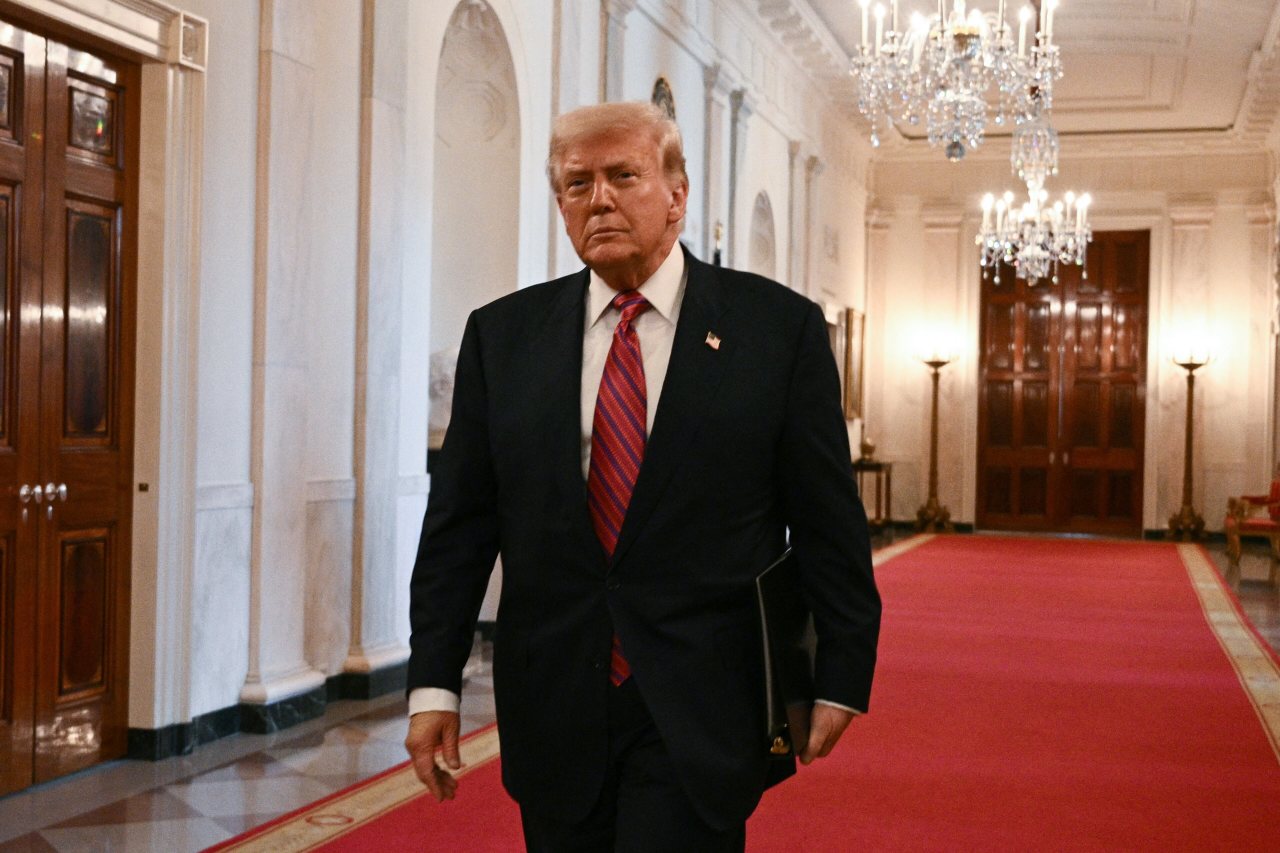Legal Battle Over Alleged Defamation
President Donald Trump has taken legal action against the publisher of The Wall Street Journal, accusing the newspaper of defaming him in an article that discussed a birthday letter linked to disgraced financier Jeffrey Epstein. The lawsuit was filed in federal court within the Southern District of Florida and includes several entities as defendants, such as Dow Jones & Co., its parent company News Corp, and key individuals like News Corp Chair Emeritus Rupert Murdoch, CEO Robert Thomson, and two reporters from the Journal.
The core of the lawsuit centers on an article that claims Trump wrote and signed a letter in 2003 that included a drawing of a naked woman for Epstein. However, the suit argues that no original letter or drawing exists, suggesting the story was fabricated. According to the legal document, the defendants created this narrative to harm Trump’s reputation and present him in a misleading light.
Dow Jones responded to the lawsuit by stating, “We have full confidence in the rigor and accuracy of our reporting, and will vigorously defend against any lawsuit.” Meanwhile, News Corp did not immediately respond to a request for comment.
The Journal’s Report and Claims
Earlier in the week, The Wall Street Journal reported that British socialite Ghislaine Maxwell had collected letters from Trump and other associates of Epstein for a 2003 album celebrating Epstein’s 50th birthday. The publication claimed that the book contained a bawdy letter bearing Trump’s name, which reportedly included typewritten text surrounded by the outline of a naked woman. The letter concluded with the phrase, “Happy Birthday — and may every day be another wonderful secret.”
Some pages from the leather-bound album, which were compiled before Epstein’s initial arrest in 2006, were examined by Justice Department officials during their investigations into Epstein and Maxwell. However, it remains unclear if these documents are part of the Trump administration’s recent review.
Trump denied any involvement with the letter or the drawing, stating, “I never wrote a picture in my life. I don’t draw pictures of women.” He added, “It’s not my language. It’s not my words.” Trump had previously threatened legal action over similar allegations.
Ongoing Legal and Political Tensions
The release of Epstein-related documents and the president’s connection to the financier have sparked significant controversy within Trump’s administration. After the Journal article was published, Trump took to social media, urging Attorney General Pam Bondi to “produce any and all pertinent grand jury testimony, subject to Court approval!” On Friday, the Justice Department sought court approval for the public release of such information.
In 2019, federal prosecutors charged Epstein with sex-trafficking underage girls in Florida and New York. He died while in a Manhattan federal jail awaiting trial, with the medical examiner ruling his death a suicide.
Trump has a history of filing lawsuits against various media outlets, often targeting leading newspapers and networks. While many of his cases have been dismissed early in the legal process, public figures face a high burden in defamation litigation. Supreme Court precedent requires them to prove that a defendant knowingly published a false statement or acted with reckless disregard for the truth.
Despite this, Trump has achieved some notable settlements in recent years. In one case, Walt Disney’s ABC News agreed to pay $15 million plus attorney’s fees to settle a lawsuit against the network and its star anchor George Stephanopoulos. Additionally, in July, Paramount Global, which owns CBS, agreed to a similar payment to resolve Trump’s lawsuit over a “60 Minutes” interview with Vice President Kamala Harris.
Financial Demands and Legal Implications
In the latest lawsuit, Trump is seeking $10 billion in monetary damages. This ongoing legal battle highlights the complex relationship between political figures and the media, as well as the challenges of proving defamation in high-profile cases. As the case unfolds, it will likely continue to attract significant attention and scrutiny from both the public and legal experts.







